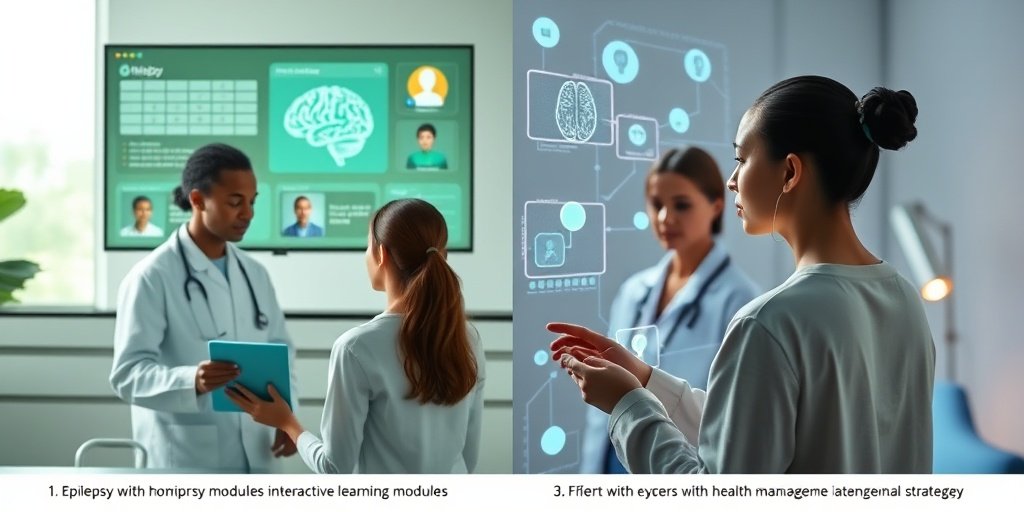⚡ Quick Summary
This article explores the transformative role of social media in medical education, particularly focusing on epilepsy. It highlights both the opportunities for enhanced learning and the challenges related to patient confidentiality and ethical guidelines.
🔍 Key Details
- 📚 Focus: Medical education with an emphasis on epilepsy
- 🌐 Platforms: Various social media platforms analyzed for their unique risks and opportunities
- 🔍 Framework: A multidimensional framework proposed for evaluating educational impact
- 💡 Innovations: Future technologies like AI, VR, and telemedicine discussed
🔑 Key Takeaways
- 🌍 Social media enhances learning experiences and professional development among healthcare professionals.
- ⚠️ Challenges include maintaining patient confidentiality and adhering to ethical guidelines.
- 📈 Framework proposed for evaluating educational impact includes reach, content accuracy, and community-level effects.
- 🤝 Collaborative learning and professional networking are significant benefits of social media in medical education.
- 💻 Future innovations in social media could further advance epilepsy education and patient care.
- 📖 Continuous medical education is facilitated through interactive learning and virtual conferences.
- 👩⚕️ Lifelong learning culture is fostered among healthcare providers, improving patient outcomes.

📚 Background
The integration of social media into medical education represents a significant shift in how information is disseminated and shared among healthcare professionals. With the rise of digital communication, there are now dynamic opportunities to enhance learning experiences, engage learners, and foster professional development. However, this transformation comes with its own set of challenges, particularly in maintaining ethical standards and patient confidentiality.
🗒️ Study
The article delves into the complexities of using social media for medical education, specifically in the context of epilepsy. It examines how different platforms can shape content delivery and user engagement, while also addressing the potential risks involved. The authors propose a multidimensional framework to evaluate the educational impact of social media, ensuring that the content shared is accurate, empathetic, and accessible.
📈 Results
The findings suggest that social media can significantly enhance medical education through various means, including interactive learning, virtual conferences, and self-directed modules tailored to diverse learning needs. These methods not only improve knowledge retention but also foster a culture of lifelong learning among healthcare providers, ultimately leading to better management of epilepsy and improved patient outcomes.
🌍 Impact and Implications
The implications of this study are profound. By leveraging social media, healthcare professionals can improve patient care outcomes and empower patients through better education and engagement. The potential for future innovations, such as artificial intelligence, virtual reality, and telemedicine, holds promise for further advancing epilepsy education and research, making it an exciting time for the field.
🔮 Conclusion
In conclusion, this article highlights the incredible potential of social media in transforming medical education, particularly in the realm of epilepsy. By addressing the challenges and leveraging the opportunities presented by digital tools, stakeholders can significantly enhance healthcare outcomes and advance scientific knowledge. The future of medical education is bright, and we encourage ongoing exploration and innovation in this area!
💬 Your comments
What are your thoughts on the role of social media in medical education? We would love to hear your insights! 💬 Leave your comments below or connect with us on social media:
How to use social media in medical education: A focus on epilepsy.
Abstract
Social media has transformed global communication and information sharing, significantly impacting medical education. It offers dynamic opportunities for enhancing learning experiences, engaging learners, and fostering professional development among healthcare professionals. Benefits include quick information dissemination, collaborative learning, professional networking, and continuous medical education, which help improve patient care outcomes. However, challenges such as maintaining patient confidentiality and adhering to ethical guidelines are critical. The article explores these complexities, with a focus on epilepsy education, highlighting how each platform presents unique risks and opportunities that shape content delivery and user engagement in the field of epilepsy. To support targeted, evidence-based strategies ensuring that educational content is accurate, empathetic, and accessible, we propose a multidimensional framework for evaluating educational impact, encompassing reach, content accuracy, behavioral outcomes, and community-level effects. Social media, despite its challenges, can significantly enhance medical education through interactive learning, virtual conferences, and self-directed modules tailored to diverse learning needs. It fosters a culture of lifelong learning among healthcare providers, improving epilepsy management and patient outcomes. Future innovations in social media, including artificial intelligence, virtual reality, and telemedicine, hold promise for advancing epilepsy education, patient care, and research. By addressing challenges and leveraging these digital tools, stakeholders can improve healthcare outcomes, empower patients, and advance scientific knowledge in epilepsy management.
Author: [‘Brigo F’, ‘Kinney M’, ‘Shlobin NA’]
Journal: Epilepsy Behav
Citation: Brigo F, et al. How to use social media in medical education: A focus on epilepsy. How to use social media in medical education: A focus on epilepsy. 2025; 171:110643. doi: 10.1016/j.yebeh.2025.110643